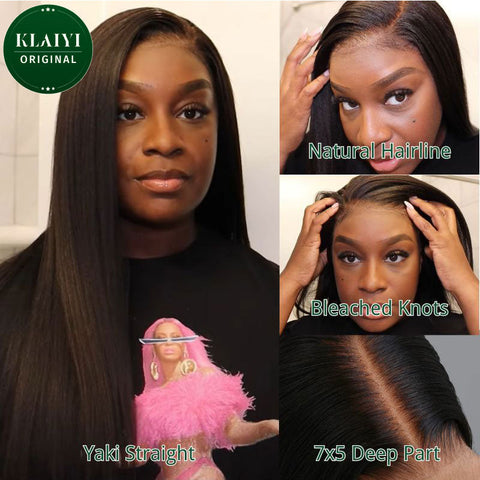Making a wig is quite complicated and time-consuming, involving considerable amounts of human hair. The measurement, as well as the manufacturing process of a wig, will be considered in this paper.
Normally, the wig is made of 10,000 to 50,000 individual hair strands. To create a custom wig from one's own hair, it is necessary to have at least eight ounces of hair. These eight ounces are equal to an average number of hairs growing on two to three heads. However, not every person has this much extra hair to donate. If you are considering donated hair, which is common for those experiencing hair loss due to medical treatments, then it may require several donors to gather a sufficient amount of hair.

The Weight Requirement:
Normally, a custom wig order would require about 300 grams of hair at least. It is the recommended amount to make sure there is still sufficient hair after producing the wig, taking into consideration hair loss that can be caused during creation.
Making sure that the hair is well prepared before starting to make a wig is as vital as having the required quantity. Hair has to be neat and sorted and, if necessary, undergo treatment. Length comes next; you will need at least 10 inches of hair, which means that once the wig is ready, it will measure around 2-3 inches less due to the tying done by hand.
Sourcing Quality Hair:
When buying hair, it is crucial to get excellent quality hair that has cuticles aligned in one direction to minimize tangling. The number of bundles required for a wig can range from 2 to 5, and their lengths could be between 10 inches and 30 inches.
The process of producing a wig, in general, is also based on the making of the wig cap, which is a base to hold the hair in place. This can be made by hand or machine, and this decision would impact the amount of hair needed as well as the naturalness of the look created by a wig.
Hand Tying:
The majority of high-quality, as well as the most natural-looking wigs, are made by hand using a hand-tying technique. Using this method, each hair is individually tied onto a lace base, making it necessary to use a large amount of hair in order to achieve full coverage.
Styling and Final Touches
Thereafter, when the hairs are glued on the wig cap, they have to be combed or arranged appropriately for the particular style being formed. For different hairstyles, it takes different quantities of hair. One of them is a layered haircut, which needs less hair as compared to a blunt cut due to the feathering technique used in layering.
Customization for Aesthetic Appeal:
Wigs could also be personalized, where sometimes it can require additional hair for bangs, longer lengths, or fullness. The customization is also based on the individual’s preference and the anticipated result.

Knowing how much hair is required and its procedure has given you enough information to either make your own wig from the beginning or to admire the attention and work that goes into a bought wig. To get a wig that not only appears natural but also fits comfortably and lasts, it is essential to consider quality hair as well as a meticulous wig-making procedure.
How do I choose the right wig cap size for myself?
When you choose the correct wig cap size, it is necessary to make sure that you will be comfortable wearing it and that your wig does not look unnatural or move around when worn. To make your selection easier, I’ll give you a detailed step-by-step guide:

-
Take a tape measure made of soft material.
-
Put the tape at the starting point of your hairline in such a way that it falls in the middle of your forehead. The circumference of the head should be measured using a tape. The tape is held just above the ears and around the nape of the neck and brought back to where it started from. For adults, sizes range between 21" (petite) up to 23" (large).
-
Consult a Wig Size Chart
-
A size guide is available with almost every wig seller, and they correspond to the measurements. In case you determine your measurement on this chart, then you can choose among petite, average, or large cap wigs.
-
Consider the Shape of Your Head
-
Look for Adjustable Wigs
-
Check the Return Policy
-
To ensure that you get a wig that is the right size, it is advisable to make your purchase from a retailer who has a flexible return policy so that if it doesn’t fit as expected, you will be able to exchange it.
-
Wear a Wig Cap
-
To ensure that you get a wig that is the right size, it is advisable to make your purchase from a retailer who has a flexible return policy so that if it doesn’t fit as expected, you will be able to exchange it.
By following these steps, you can readily choose a wig that will properly fit and make you comfortable all day. Do not forget about accuracy and using measuring tools, as well as consulting sizing guides from hairpiece producers; all of this is important to select a wig cap size suitable for your head.































































































